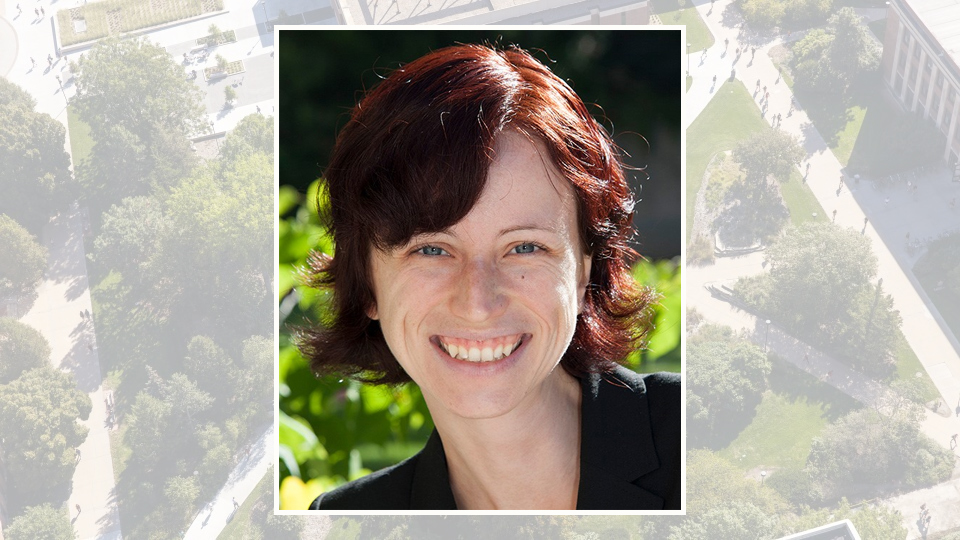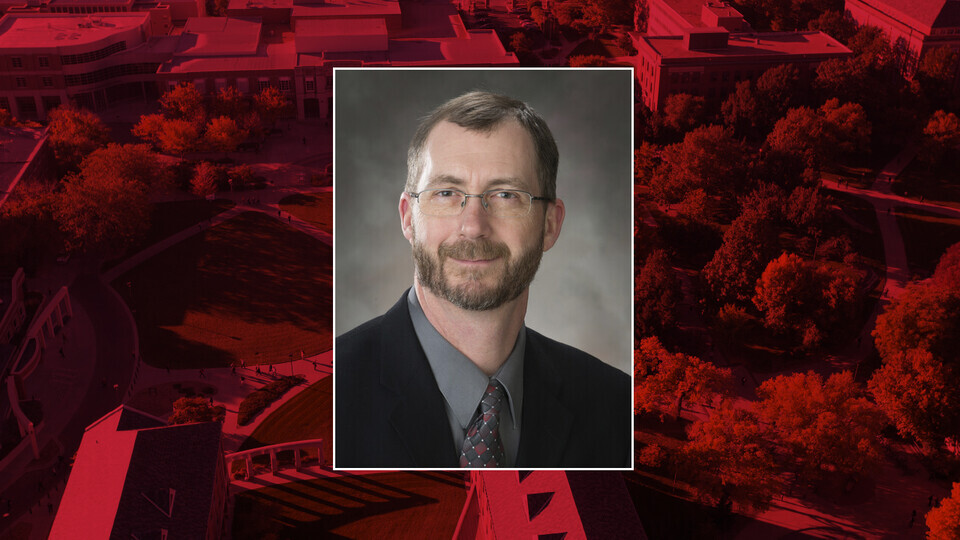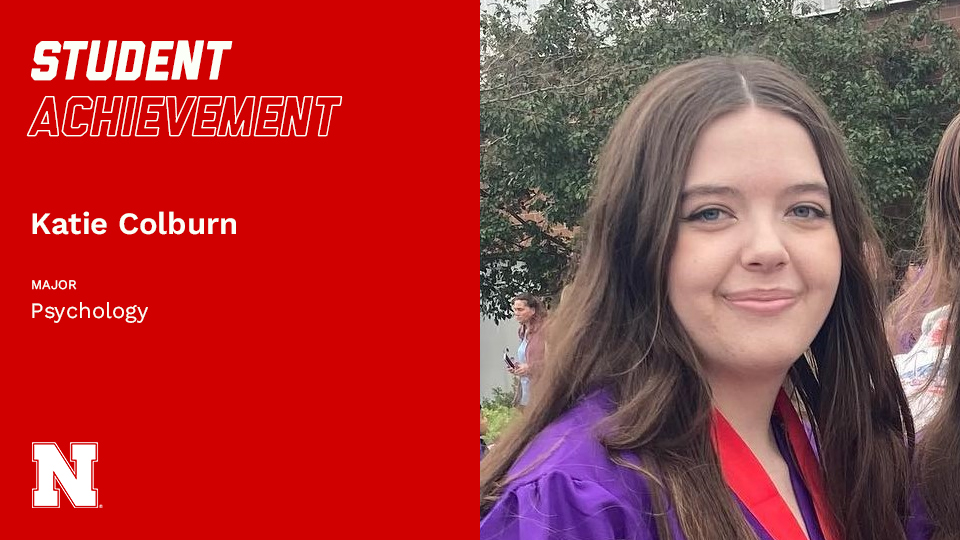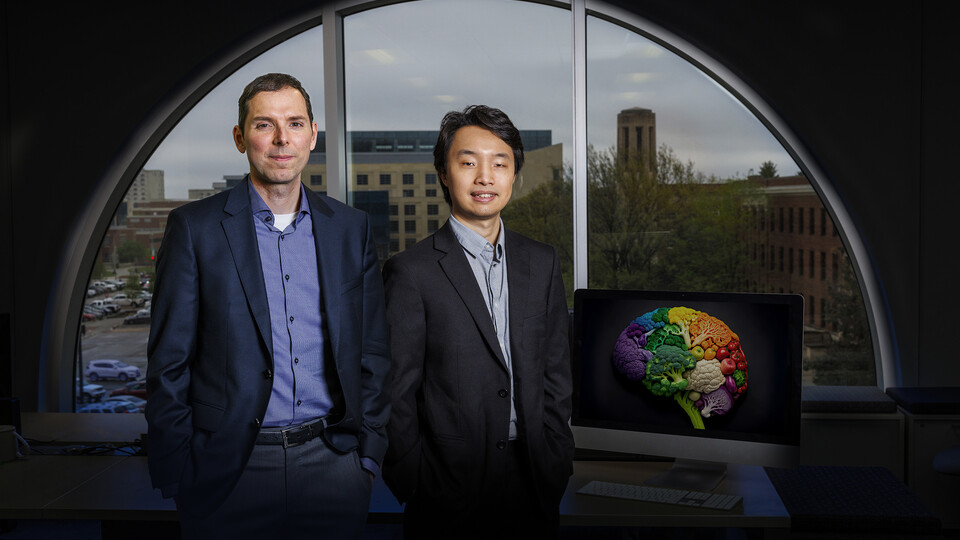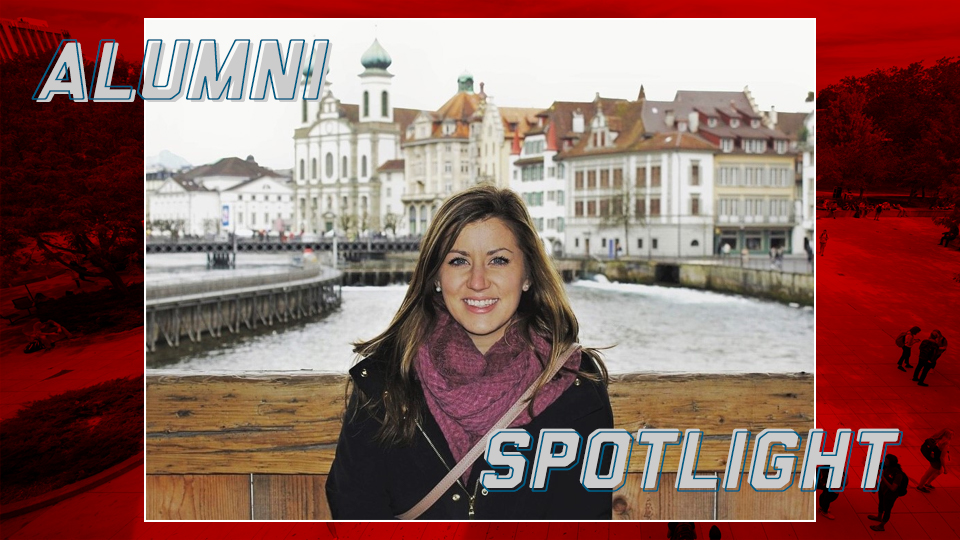
Major: Spanish and psychology
Graduation Year: 2011
Employer and location: Boys Town National Research Hospital in Omaha, NE
What is your job title and what kind of work does it involve?
I am a Bilingual Speech-Language Pathologist. I evaluate bilingual and monolingual children and determine whether they are learning to communicate appropriately, or if they would benefit from therapy. If so, I create treatment plans to help them develop whichever area of their language requires direct, specialized intervention. Such areas could include phonology (speech sounds), semantics (vocabulary), syntax (grammar and sentence structure) and/or pragmatics (social skills) in both English and Spanish.
I also provide early intervention services for children ages birth to three as a Parent-Infant Specialist. I provide in-home parent coaching to guide the family to incorporate strategies within their home routines to support the overall development of their child diagnosed with a hearing loss, including their communication skills. The majority of the families I see are first or second generation immigrants from Spanish-speaking countries.
What sparked your interest in your majors?
My undergraduate degree was actually not in speech pathology. Instead, I obtained a double major in psychology and Spanish. My reasons for studying these sparked out of pure interest in both topics. I loved psychology because I was fascinated by how our minds work, and how our cognition and personalities are shaped by what we experience and perceive about the world.
I thought, if I could understand myself and my own thinking better, I could interact with others more productively and empathetically. I knew I was dedicated to learning Spanish when I was in middle school and found it to be like a fun puzzle, a secret language. I had studied other languages in elementary school while living abroad (Japanese, Indonesian, French) but fell in love with the phrasing and sounds of Spanish. I’m lucky that at a young age I was exposed to how powerful and meaningful being bilingual could be, and Spanish seemed like the obvious choice to connect right away with many people in our country.
What do you see as the value of your majors or CAS degree?
My education learning Spanish at UNL is the reason I am able to truly provide bilingual clinical services today. The variety of coursework available, specifically on the linguistics track, was varied and intensive. Spanish Phonetics taught me correct pronunciation to help me sound more like a native speaker as I give Spanish assessments and transcribe language samples.
Spanish Linguistics and Advanced Grammar taught me how to break apart the language to find underlying patterns. Because of this I can more easily break apart any language, no matter what the child speaks. Spanish Stylistics taught me the importance of phrasing and tone which helps me know how to sound either more professional or more casual depending on the situation. The Spanish Translation Workshop course taught me how to really, really understand the concept of a sentence and transfer that to portray the same concept in the opposite language. I use all of these skills when figuring out a bilingual child’s language disorder and then, in my second language, explaining the intricacies of it to their parents. The Spanish education at UNL that I received contributed greatly to my ability to dissect the language, which is crucial as a Speech-Language Pathologist in that every day I listen to how a child talks and dissect what they say with a critical ear.
My courses in psychology created a strong basis for me to know how to critically review articles and information. All of my treatment techniques need to be backed by evidence and research. I am fortunate to have had four years learning how to efficiently read and pick apart research, especially regarding behavioral human participants, in order to be a strong applicant for graduate school. I also find this especially helpful when finding current research to break the myths of bilingualism for families who continue to be told that their child will become confused learning two languages. The skills from my psychology degree at UNL continue to benefit me as a clinician today.
Were there any other people, activities, or events from your time at UNL that helped you get to where you are now?
A crucial component of my undergraduate experience was when I studied abroad in central Mexico (Queretaro) during the summer between my sophomore and junior year. I spent six weeks with a group of students and two guides from UNL. We were fully immersed in the language and culture, lived with host families, took courses at the university and met tons of locals who helped us to practice the language in natural settings.
The following summer I actually returned to the same city in Mexico for eight weeks and worked as an intern for that university. I worked with all students and staff from Mexico, spoke Spanish from sunrise to sunset and fell in love with the country and its people. These two summers changed my life, gave me confidence in my bilingualism, and instigated a certainty that I needed to speak Spanish on a daily basis after graduation. UNL planned the whole program and always encouraged us to study abroad if possible. Had I not taken this opportunity, I do not know if I’d feel as connected to the language and culture like I do.
Tell us about the path you took to get to where you are today in your career and how you applied your education in your majors or areas of study to get here:
Following graduation in 2011, I felt a little lost. Typing “Spanish” into careerlink.com was not very specific. Not having a focused line of work left me feeling like this skill that I had been told was so important was just floating by. I applied to several businesses hoping for any type of bilingual role – Customer Service, Human Resources, anything - and nothing was sticking. It was then that I accepted a part-time role as a teaching assistant in a preschool that needed a bilingual staff member. I just needed something to get me started. I was very lucky because this is where I learned about speech-language pathology. I spent one night researching this career and knew instantly it was the ideal fit for me. It felt like the perfect combination of my psychology and Spanish majors and I could tell it was such a specialized and important field. I needed to take one extra year of graduate courses to catch up with prerequisites, but it has been very worth it. Currently I’m working as one of very few bilingual clinicians in Nebraska and the career is in dire need of more.
What are your future professional goals?
I am comfortably working as a clinician now but always will consider furthering the career someday by pursuing a PhD. Bilingualism and second language acquisition are continuing to gain research attention and I think there will come a time when I have a clinical question that is not yet answered. Meanwhile, I’m furthering my specializations and expertise by taking courses in topics that are relevant to my current role such as bilingual treatment, sign language, treatment approaches for children who are deaf and/or hard of hearing, and parenting.
